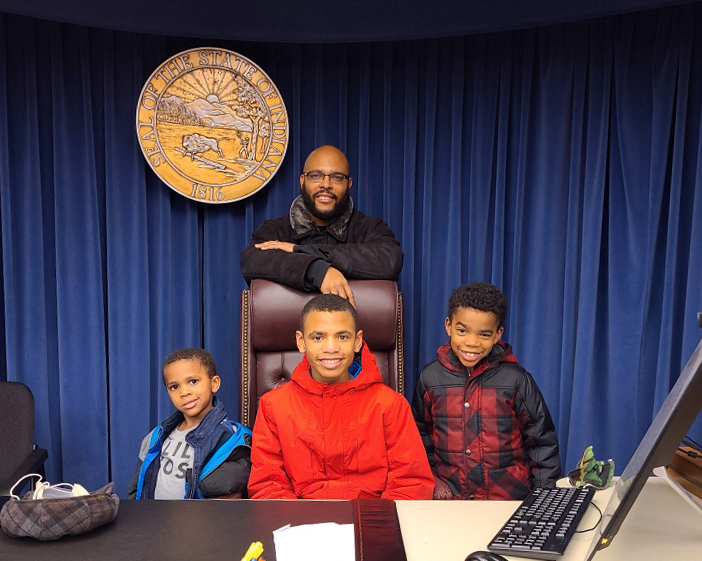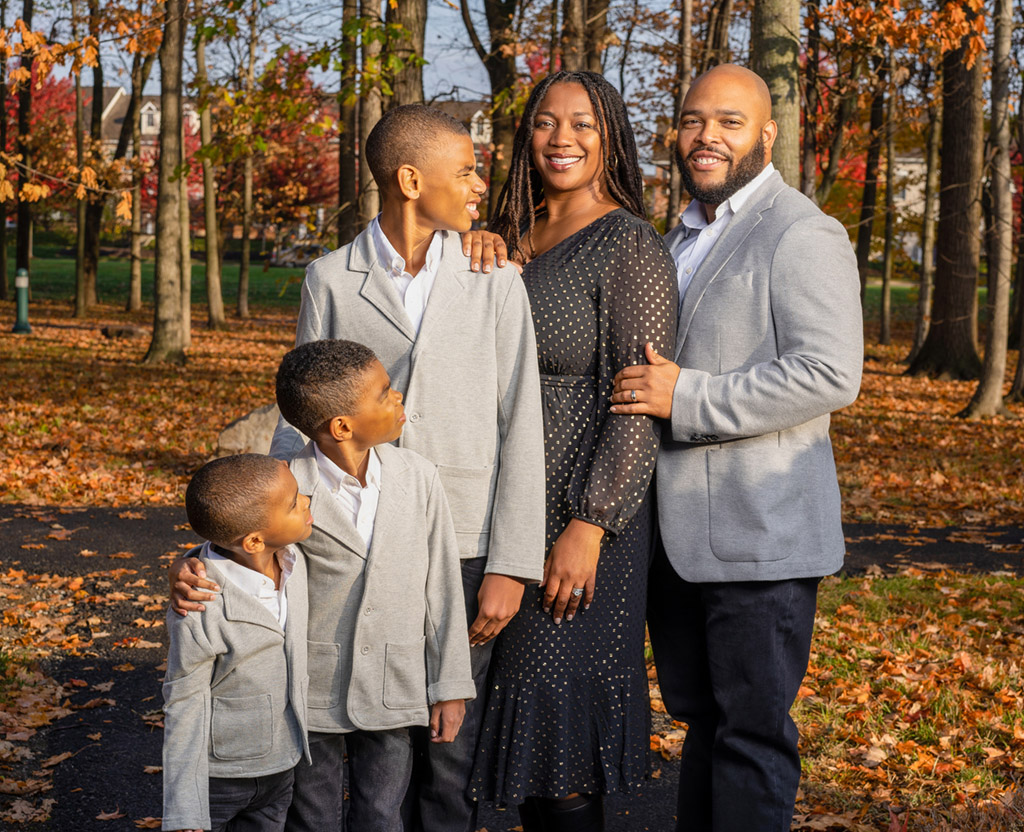By Kathryn Dolan, Chief Public Information Officer • Office of Communication, Education & Outreach
This is the sixty-first Court Times article highlighting a member of the Indiana Judiciary.
Ryan K. Gardner became judge in the Marion Superior Court Family Division in January 2021, after serving as a magistrate in the Juvenile Court beginning in 2019. He received his B.A. from Indiana University in Bloomington, joined the ICLEO program, and started his first year of law school in 2001 at McKinney School of Law. In 2002, he served as a clerk and bailiff in Marion County for Judge Gerald Zore. The following year, he clerked for Court of Appeals Judge Patricia Riley.
Judge Gardner says he knew he wanted to be a lawyer and a judge when—at around 12 years old—he learned about Thurgood Marshall. Judge Gardner was inspired by Justice Marshall’s story, overcoming the conflict of the era to become one of the nation’s greatest legal minds and the first Black Justice of the U.S. Supreme Court.
What was your childhood like?
I was born and raised in Gary, Indiana. I was raised by my mother and my step-father. My parents always preached the importance of an education. My step-father is a veteran who taught me responsibility and discipline. They kept me active in sports, and we traveled occasionally during the summer. My step-father’s influence, encouragement, and presence are what taught me to be an ever-present, active father and loving husband.
What is the most challenging aspect of your job and what brings you joy?
The most challenging aspect of my job is addressing matters where a child has to be taken off life support. Thankfully, I have only had to address these instances a few times, but it is never easy to make that decision.
When it comes to my job, what brings me joy is watching a family that came before me feeling hopeless reach the point of case closure with a reunified family, hope restored, and equipped to deal with the trials and tribulations that life sometimes presents us. It also brings me joy to see at-risk youth smiling during review hearings on my delinquency docket.
What career would you choose if you weren’t already in this field?
I would likely be a professor because I love to teach. I have taught a monthly Bible study for nearly three years and enjoy preparing the lessons. I also present to both high school and college students whenever I have an opportunity. I’ve been told that I missed my calling as a motivational speaker. I think that I could make a good career doing that as well.

Do you have a favorite hobby?
I love to listen to old-school music, primarily R&B and jazz. As a child, my mother kept music playing in the house, and she would often quiz me to see if I knew the artist and the name of the song. That fostered a love of music that to this day relaxes me. It’s not uncommon to find me at home with my feet kicked up and my headphones on listening to music.
Where is your getaway spot, a place where you like to relax?
I grew up about 30 minutes from Chicago, so I love visiting to see plays or just to hang out in the city. My wife and I also love Puerto Vallarta, Mexico.
What’s your favorite meal, place to eat, or recipe?
My favorite place to eat is Pappadeaux Seafood Kitchen. I’m a seafood fanatic, and Pappadeaux has great food and drinks. The first one I ever visited was in Dallas, Texas. That was the first time that I ever tried alligator.

What are you looking forward to in the next year or two?
My wife and I have been married for 17 years, so I am looking forward to spending the years together and watching our three sons continue to grow. I’m looking forward to continuing to grow and learn on the bench. I’m also looking forward to continuing my involvement to make my profession and community better.
Do you have any advice for your colleagues?
I learned long ago that while litigation by its very nature is adversarial, that does not mean that we have to treat one another like enemies. We live in such a bitterly divided society that it seems that the things that divide us are always at the forefront and bleed over into every aspect of our lives. Despite all the noise around us, remember that justice is always depicted with a blindfold on, so that she can operate without bias. If the judiciary mimics what it sees and hears, we’re in trouble. If we are determined to rise above what we see and hear to impartially do what is right and fair, respect for—and trust in—the judiciary will be the result.